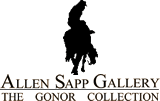askîhkân pimâtisiwin
cikâstêpayihcikêwin: Transcript:
Vignette Three:
ê-pîkopitamihk askiy
Section One:
askîhkân pimâtisiwin
When the elders voices speak, they observe images of the “the new way” that was imposed upon them… the reserve, agriculture, log houses. In spite of these outward changes in lifestyle, it becomes clear that their values and beliefs remained unchanged.
The essence of who they were as a people and what they valued remained intact… family, community, generosity, prayer, respect for the land.
Cree remained the spoken language, holding within it, words and ways of seeing and knowing that could not be understood nor changed by the encroaching European culture.
The horse was part of our life. They were obedient horses, never mistreated or anything like that… my dad, these horses were respected, 'cause they were according to my grandfather, these horses were put on earth for one specific purpose, that is to serve the people.
Out of that respect, these cows providing for us and everything like that, they were looked after as well too. Later on they become regarded as horses were, because they gave life.
But those log houses sure weren't warm. Cree there was no foundation. Cree and then they start building from there and if you didn't bank it. It would be very cold from the floor. Cree you had to have 2 stoves. One cook stove and one heater.
I used to be there in a flat tub or something like that. I'd stomp my feet in that mud helping out that way. They'd plaster the walls take out the old ones and put them back in the hot water to make it soft Cree. They did that every fall. If they did a good job, they wouldn't have to do it for two years time.
That's one thing I remember, even my late son never believed me. We went down to the river one time, Battle river, and I said Jack I remember when I was a kid we used come and camp here, I said and you could see all the rocks, even the little weeds floating you know growing in the river, just like they were moving and the rocks and the rocks you could see the bottom of the river it was so good and we used to drink from there. The river is just about green now the Battle River.
Lots of brothers, I never got the opportunity of chopping wood but I always envy my brothers it looked so easy, splitting wood, so one day everyone was gone I tried my hand at splitting wood. I chopped my leg.
When it gets too cold somebody would run in the back and then the other would jump off and then they go into town 5 dollars a load 4x4 and then they got a little wiser and they made those about 6 feet wide for a larger load and it was a dollar extra.
And here's this man thrashing, that was a long time ago too. It was very, very ah used to be good. The women used get together and make a big dinner, supper and breakfast. They used all go make meal those were really happy times for everybody.
Thrashing times that one time I was 12, 34 dollars.
People started getting together playing hockey game on the ice.
I remember I was about 4 or 5 years old. I had one skate. I'd push myself along on that one skate and that was my first experience with hockey. I played like that we got that skate from a church group. By the time we found out about them, my toes extra pair, so that I could fit that skate willow we used to make hockey sticks out of there hockey stick we didn't have those, there is no cree word for hockey stick.
Runtime: 6:17
Size: 22.7 MB
